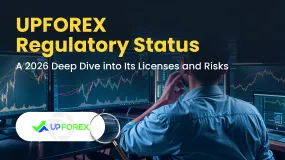Abstract:Sterling rose on Friday moving close to levels last seen before the new government’s so-called mini budget a week ago sent the currency to a record low against the U.S. dollar.

Sterling rose on Friday and was set for its biggest weekly gains since March 2020 after the Bank of England intervened to calm markets spooked by the government tax cut plans announced on Sept. 23.
In a turnaround from the record lows the pound struck on Monday in reaction to the so called mini-budget fiscal plan, and helped by emergency BoE bond buying, the British currency rose to a one-week high on Friday.
It was heading for its biggest weekly rise in more than two years, but was still set for its second deepest monthly drop since October 2016.
Prime Minister Liz Truss and finance minister Kwasi Kwarteng met Britains fiscal watchdog Office For Budget Responsibility (OBR) and confirmed markets would have to wait until Nov. 23 for independent economic and fiscal forecasts.
Chris Turner, head of markets at ING said the government “still has to find a way to balance the books and avoid a very negative assessment from the rating agencies”.
“A Conservative party conference this weekend suggests it is far too early for a U-turn on fiscal policy and, combined with a very difficult external environment, sterling should stay vulnerable,” he added.
In a volatile session, the British currency rose 0.5% to $1.1171 at 1515 GMT after slipping as much as 0.8% earlier. It had touched a one-week high of $1.1235 in early London trading that took it close to erasing all of the steep losses in the aftermath of the new governments fiscal plans announced last Friday.
Versus a weakening euro, hit by record high inflation in the euro zone, the pound rose to one week high before trimming some of those gains, and was last up 0.7% to 87.79 pence.
Boe intervention
Bringing some support to sterling, the BoE bought 1.195 billion pounds ($1.33 billion) of long-dated government bonds at a daily operation designed to calm markets, down from 1.415 billion pounds on Thursday and well below its 5 billion pound maximum.
On Thursday, the pound jumped 2.13% as the BoE conducted a second day of bond buying to stabilise markets, sending gilt yields higher. [GB/]
Truss vowed to stick with her fiscal plans on Thursday, in her first comments since the turmoil erupted in markets.
For the BoE, traders predict a 125 basis points interest rate hike at its next meeting in early November.
Nineteen of the 36 economists surveyed by Reuters said the Bank would add 75 basis points in November while 13 said it would go for a super-sized 100 bps lift.
In another sign of the economic slowdown caused by a cost-of-living squeeze and rising interest rates, British house prices failed to rise in monthly terms for the first time since July 2021, mortgage lender Nationwide said on Friday.
But British lenders approved many more mortgages than expected in August.
Data on Friday showed Britains economy unexpectedly grew in the second quarter but was below its pre-pandemic peak, contrary to an earlier estimate that it had recovered.
Another indicator, released by the Recruitment & Employment Confederation, showed British job vacancies dropped to the lowest level since the COVID-19 pandemic last week, in a sign of a further weakening in the labour market.










